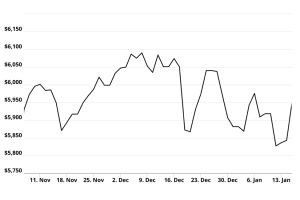
Tesla (NASDAQ:TSLA) stock is in focus, as its weight will be reduced when the Nasdaq-100 conducts its special rebalance, effective as of the market open on July 24. The Nasdaq-100 tracks the largest 100 companies on the Nasdaq exchange and is weighted by market capitalization. This means that a company’s weight in the index will be greater if its price, or market capitalization, increases.
Currently, the top seven companies in the Nasdaq-100 account for more than 55% of the index. This has led to fears of over-concentration, or that the index could experience a significant decline if these seven companies fall to the downside.
Nasdaq states that a special rebalance can be triggered if the total weight of individual companies accounting for 4.5% or more of the index have a weight greater than 48%. It can also be triggered if one company’s weight exceeds 20%.
Dear TSLA Stock Fans, Mark Your Calendars for July 24
The special rebalance won’t just affect the Nasdaq-100’s holdings. Indices that track the Nasdaq-100 will also have to follow suit with the changes. Since its inception, the Nasdaq-100 has only initiated a special rebalance two other times, in 1998 and in 2011.
The special rebalance has been the talk of the town the past few weeks. However, it should not have any long-term implications on the companies affected.
“Given the underlying value has not changed any front-selling of shares in advance of the special rebalance should theoretically be met by bids as the underlying value has not changed,” said Saxo Bank Head of Equity Strategy Peter Garnry. “Despite this obvious fact one could still make the case that forced selling by passive ETFs tracking the Nasdaq-100 Index could move the market.”
Still, that doesn’t mean that there will be no short-term volatility. The news of the special rebalance could cause some investors to sell out of their holdings that will experience a weight reduction, which could exasperate the effects of the rebalance. According to Nasdaq, the seven biggest companies in the index will see their combined weight fall to 43.7% from 55.1%.
In the long term, though, these seven companies will still be judged on their financial performance and not on their weight in the Nasdaq-100.
On the date of publication, Eddie Pan did not hold (either directly or indirectly) any positions in the securities mentioned in this article. The opinions expressed in this article are those of the writer, subject to the InvestorPlace.com Publishing Guidelines.




